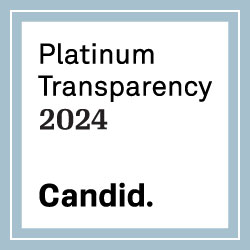FEBRUARY 7, 2019 BY
BOULDER HITS KEY CLIMATE COMMITMENT MILESTONE
Boulder achieves its 2020 greenhouse gas emissions reduction target three years early
As of 2017, Boulder’s greenhouse gas emissions equate to approximately 1.5 million metric tons. Boulder’s goal is to reach 369,000 metric tons in 2050. Boulder emits more metric tons per person than cities such as Fort Collins and New York City, but emits less metric tons per person than Colorado as a whole and Denver.The City of Boulder has achieved a 16 percent reductio
n in community greenhouse gas (GHG) emissions compared to a 2005 baseline, according to the city’s annual inventory . The analysis shows that Boulder has achieved its 2020 GHG emissions reduction target three years early and, even more noteworthy, has done so during a time of economic and population growth in the city.
Hitting this key milestone is an important step to achieving Boulder’s goals, and it demonstrates the commitment this community has made to reducing its impact on the environment. While this is an achievement worth celebrating, closing the gap to an 80 percent reduction in communitywide emissions by the year 2050 remains a daunting goal.
“A 16 percent emissions reduction is a significant step forward, particularly for a municipality, but the real heavy lift is yet to come. The planet is on track to tip over the 1.5°C increase mark far sooner than previously thought. Urgent, large-scale change is required to keep below this threshold. We need to do more, and we need to do it faster,” said Kendra Tupper, the city’s chief sustainability and resilience officer.
Getting there requires a switch to 100 percent renewable electricity; electrification of vehicles and buildings across the community; minimizing energy, water and material consumption; and preserving ecosystems. The city is working to achieve these goals through a diverse set of programs and initiatives largely funded by the Climate Action Plan Tax and the Trash Tax. More data and information on progress can be found on the city’s Community Greenhouse Gas Emissions dashboard on Boulder Measures.
The city has conducted an inventory since 2005 to measure progress of emission reductions initiatives funded by the Climate Action Plan tax. Boulder reports against the BASIC reporting level of the internationally accepted Global Protocol for Community-Scale Greenhouse Gas Emission Inventories (GPC) for GHG emissions.
For more information about the City of Boulder Greenhouse Gas Emissions Inventory Summary Report, please visit bouldercolorado.gov/climate/boulders-community-greenhouse-gas-inventory .
Information about the city’s climate strategy, resources and programs is available at www.boulderclimate.com.
Published: Jan.18, 2019
Media Contacts:
Alexis Bullen, Sustainability Communications, 303-441-1878
Kimberlee Rankin, Climate Initiatives, 303-441-4227
bouldercolorado.gov/climate/boulders-community-greenhouse-gas-inventory






